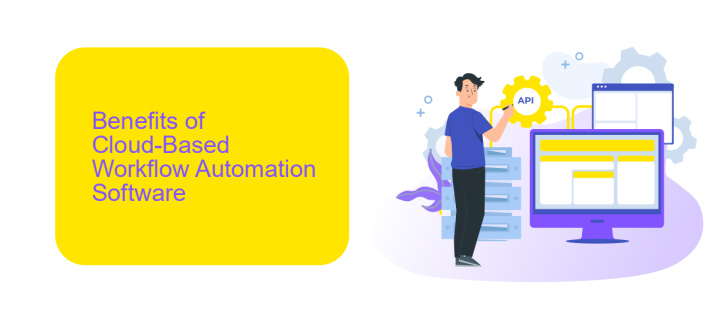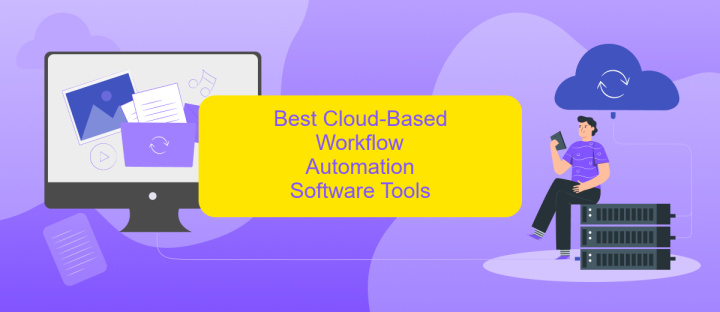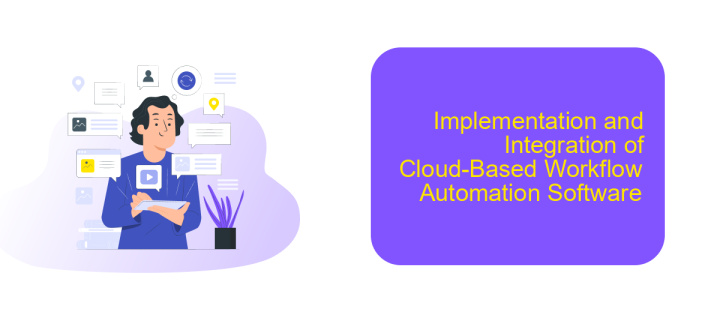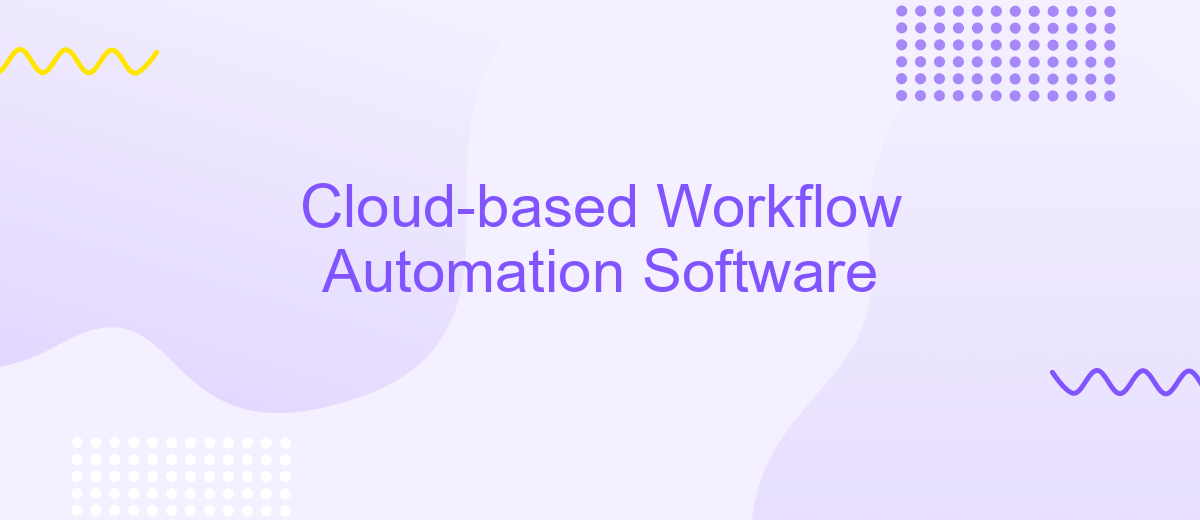Cloud-based Workflow Automation Software
In today's fast-paced business environment, efficiency and productivity are paramount. Cloud-based workflow automation software offers a transformative solution by streamlining and automating routine tasks, allowing teams to focus on strategic initiatives. This technology not only enhances operational efficiency but also provides scalability, flexibility, and real-time collaboration, making it an indispensable tool for modern enterprises aiming to stay competitive.
Introduction
In today's rapidly evolving business landscape, cloud-based workflow automation software has emerged as a pivotal tool for organizations aiming to enhance efficiency and reduce operational costs. These platforms provide a seamless way to automate repetitive tasks, streamline processes, and integrate various applications and services, thereby fostering a more productive work environment.
- Automates routine tasks, freeing up valuable time for employees
- Enhances collaboration by integrating multiple applications
- Reduces human error and improves accuracy
One notable example of such a service is ApiX-Drive, which simplifies the integration of diverse applications and services. By leveraging ApiX-Drive, businesses can effortlessly connect their existing tools and automate workflows without the need for extensive technical knowledge. This not only accelerates project timelines but also ensures that all systems work harmoniously together, enabling organizations to focus on their core objectives.
Benefits of Cloud-Based Workflow Automation Software

Cloud-based workflow automation software offers numerous advantages for businesses looking to streamline their operations. One of the main benefits is the increased efficiency it provides. By automating repetitive tasks, employees can focus on more strategic activities, leading to improved productivity and reduced operational costs. Additionally, cloud-based solutions ensure that workflows are accessible from anywhere, allowing teams to collaborate seamlessly, regardless of their physical location. This flexibility is particularly valuable in today's remote and hybrid work environments.
Another significant benefit is the ease of integration with other tools and systems. Services like ApiX-Drive facilitate the connection between various applications, enabling data to flow effortlessly across platforms. This integration capability ensures that information is consistent and up-to-date, reducing the risk of errors and enhancing decision-making processes. Furthermore, cloud-based solutions typically offer robust security measures, ensuring that sensitive data is protected. Overall, the adoption of cloud-based workflow automation software can lead to more efficient, secure, and agile business operations.
Best Cloud-Based Workflow Automation Software Tools

Cloud-based workflow automation software has revolutionized the way businesses operate by streamlining processes and improving efficiency. These tools allow organizations to automate repetitive tasks, integrate various applications, and enhance collaboration across teams.
- Zapier: A versatile tool that connects apps and automates workflows without requiring coding skills.
- ApiX-Drive: A powerful integration service that simplifies the process of connecting different applications, making it easier to automate workflows and synchronize data.
- Microsoft Power Automate: Formerly known as Microsoft Flow, it helps automate workflows between your favorite apps and services.
- Integromat: Known for its visual approach to automation, it allows you to design complex workflows with ease.
- IFTTT: "If This Then That" is perfect for creating simple conditional workflows between various apps and devices.
These tools offer a range of functionalities to suit different business needs. Whether you're looking to automate simple tasks or complex processes, these cloud-based solutions provide the flexibility and scalability required to enhance productivity. By leveraging services like ApiX-Drive, businesses can ensure seamless integration and data flow across their applications, leading to more efficient operations.
Implementation and Integration of Cloud-Based Workflow Automation Software

Implementing cloud-based workflow automation software involves several critical steps to ensure seamless integration and optimal performance. The initial phase includes assessing existing workflows and identifying areas that can benefit from automation. This analysis helps in selecting the right software that aligns with organizational goals and technical requirements.
Once the appropriate software is chosen, the next step is to configure and integrate it with existing systems. This process often requires collaboration between IT and operational teams to ensure compatibility and smooth data flow. Platforms like ApiX-Drive can significantly simplify this process by offering pre-built connectors and integration tools, reducing the time and effort needed for setup.
- Assess current workflows and identify automation opportunities.
- Select suitable cloud-based workflow automation software.
- Configure the software and integrate it with existing systems.
- Utilize integration platforms like ApiX-Drive for seamless connectivity.
After integration, thorough testing is essential to ensure that the automated workflows function as intended. Continuous monitoring and optimization are also crucial to adapt to changing business needs and to maintain efficiency. With proper implementation and integration, cloud-based workflow automation can significantly enhance productivity and streamline operations.


Case Studies and Best Practices for Cloud-Based Workflow Automation Software
One notable case study involves a mid-sized e-commerce company that implemented cloud-based workflow automation software to streamline its order processing. By integrating various systems such as CRM, inventory management, and shipping services, the company reduced manual data entry and minimized errors. Utilizing ApiX-Drive, they were able to set up seamless integrations between different platforms, ensuring real-time data synchronization and faster order fulfillment. This led to a 30% increase in operational efficiency and a significant reduction in order processing time.
Best practices for implementing cloud-based workflow automation include thoroughly assessing your current workflows and identifying repetitive tasks that can be automated. It's essential to choose a reliable integration service like ApiX-Drive to connect disparate systems smoothly. Additionally, involving key stakeholders in the planning and implementation phases can ensure the solution meets the organization's needs. Regularly monitoring and optimizing the automated workflows will help maintain efficiency and adapt to any changing business requirements.
FAQ
What is cloud-based workflow automation software?
How does cloud-based workflow automation software benefit businesses?
Can cloud-based workflow automation software integrate with other tools?
What types of tasks can be automated using cloud-based workflow automation software?
Is it difficult to set up and manage cloud-based workflow automation software?
Apix-Drive is a universal tool that will quickly streamline any workflow, freeing you from routine and possible financial losses. Try ApiX-Drive in action and see how useful it is for you personally. In the meantime, when you are setting up connections between systems, think about where you are investing your free time, because now you will have much more of it.

